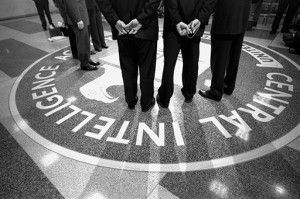CIA Suffers Top-Level Brain Drain
In the decade since the attacks of Sept. 11, 2001, private intelligence firms and security consultants have peeled away veterans from the top reaches of the CIA, hiring scores of longtime officers in large part to gain access to the burgeoning world of intelligence contracting.
At least 91 of the agency’s upper-level managers have left for the private sector in the past 10 years, according to data compiled by The Washington Post. Several of the top positions have turned over multiple times in that period: In addition to three directors, the CIA has lost four of its deputy directors for operations, three directors of its counterterrorism center and all five of the division chiefs who were in place the day of the Sept. 11 attacks.
In many quarters in Washington, government officials decamp for the private sector as a matter of course. Defense consultancies routinely hire generals retiring from the Pentagon; the city’s lobbying firms are stacked with former members of Congress and administration officials.
But the wave of departures from the CIA has marked an end to a decades-old culture of discretion and restraint in which retired officers, by and large, did not join contractors that perform intelligence work for the government. It has also raised questions about the impact of the losses incurred by the agency. Veteran officers leave with a wealth of institutional knowledge, extensive personal contacts and an understanding of world affairs afforded only to those working at the nation’s preeminent repository of intelligence.
Among the CIA’s losses to the private sector have been top subject-matter experts including Stephen Kappes, who served as the agency’s top spy in Moscow and who helped negotiate Libya’s disarmament in 2003; Henry Crumpton, who was one of the CIA’s first officers in Afghanistan after the Sept. 11 attacks; and Cofer Black, the director of the agency’s counterterrorism center on Sept. 11.
The exodus into the private sector has been driven by an explosion in intelligence contracting. As part of its Top Secret America investigation, The Post estimated that of 854,000 people with top-secret clearances, 265,000 are contractors. Thirty percent of the workforce in the intelligence agencies is made up of contractors.
Click here to read more.


